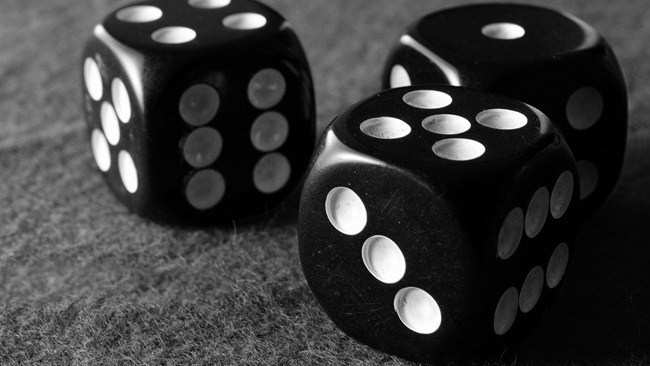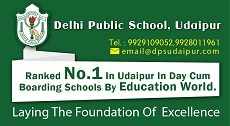Need of a real ‘Game Changer’ An analysis
v

Indian polity in the form of Democracy started with the monopoly of Indian National Congress from 1952 to 1967 during which this party ruled the Indian federation in totality.
This was perhaps due to the fact that the Independence Movement was led by it and Congress Party was an umbrella under which people of varied political inclinations gathered. Jawahar Lal Nehru remained the most charismatic leader holding sway over Indian minds as well as a towering leader of the Non-Aligned countries. The overall ideology of the Congress remained ‘left of centre’ or socialist in character.
He managed to appoint his daughter Indira Gandhi as Congress President in 1959 thereby instituting what in Indian scenario is called ‘Dynastic Rule’ in Congress. The border war with China in 1962 led to lower the esteem of Nehru. Disheartened, he died in 1964. The death of his successor, Lal Bahadur Shastri at Tashkent in 1966 and elevation of Indira Gandhi as Prime Minister by the leaders of the so-called syndicate in the Congress party established Indira Gandhi as a leader on her own strength.
Gradually Congress Party by that time had started losing prominence. That became evident when in the 1967 elections the Congress lost monopoly in many states and advent of the era of ‘Samyukt Vidhayak Dals’ (Legislatures formed by an alliance of political parties inimical to congress).
The Left Front captured power in West Bengal, Kerala and Tripura. By that time people had not yet tested the strength of Indira as Prime Minister.
This stage may be considered as a trigger for the emergence of regional political formations on one hand and the process of ‘Game Changing’ on the other. The seeds for cast based politics also could be traced to this period. It could have been an opportunity to reinstate collective decision making process in the Congress to undo the perception of dynastic rule.
However, at the centre the Congress kept its working majority as a ruling out fit till the split in congress in 1969 brought about a shift at the Centre too, when Indira’s cabinet survived on the support of the Left parties as a result of side lining of the so-called syndicate leaders in the pre-split Congress.
Her subsequent actions by way of nationalization of Banks and abolishing of privy purses of the Princes elevated her image as a strong, decisive and pro-poor leader. Her status got further boost as a result of creation of Bangladesh and the decisive military victory over Pakistan despite a show of muscle power by the then US President Richard Nixon. This and her slogan of ‘Garibi Hatao’ established her as Empress in the next general election. Baring the left parties in West Bengal, the Congress held sway. Indira Gandhi became more powerful.
This personal gain for Indira Gandhi however, weakened Congress. Internal democratic debate and working of Congress as a political party in the process suffered and the so-called ‘High command’ emerged with centralization of power in the hands of Nehru-Gandhi family.
As usual this tendency in basically a polity based on democracy and enfranchised population resulted in dissent all over leading to emergence of a movement named appropriately as ‘Total Revolution’ with Jay Prakash Narain at the fore front. Indira’s ability to handle this country wide phenomenon in the aftermath of Allahbad High Court decision annulling her election was put to test. She found solution in imposing internal emergency in India and putting JP and others behind the bars. Subsequent events in emergency further lowered her image and strengthened the country-wide agitation against her. She realized the mistakes made, lifted emergency and sought peoples mandate by way of calling general elections in 1977.
In this election all parties including the Jan Sangh and except the left parties dissolved their individual identities under a unified formation in the form of Janata Party. The later came to power not only at the centre but states where simultaneous elections were held. JP became ‘Lok Nayak’. This was yet another case of ‘Game Changing’ .
Very soon the Janata experiment failed basically in view of the fact that the out-fit was a conglomeration of various splinter groups led by egoist leaders. Charan Singh as Home Minister bungled in the way Indira was arrested despite opposition by Morarji Desai. Charan Singh left Janata Party reviving his Lok Dal and the process of disintegration of the Janata party commenced. Morarji Desai was replaced by Chaudhary Charan Singh as Prime Minister for few days at the centre with help from none other but Congress and then toppled by the latter. Jan Sangh elements left on the question of dual member ship issue giving birth to what is now the BJP. People who whole heartedly voted for the Janata conglomerate were highly disappointed. Janata lost its people’s confidence.
Soon the elections called in 1980 re-instated Indira Gandhi as the Prime Minister once again bringing an end to game changing. During the intervening period Indira lost her son Sanjay and the reluctant Rajiv was brought in. Operation Blue Star in 1984 in Golden Temple proved another shot in enhancing Indira’s image as a strong leader and firmly put the Congress party under her control. However, her assassination in October same year brought an abrupt end to her political career. But Nehru-Gandhi family retained its hold over Congress party when Rajiv Gandhi was made the Prime Minister and then President of Congress party. Rajiv called a snap poll and got landslide victory decimating all those who nurtured anti-Congress sentiments. The BJP got only two parliamentary seats.
Rajiv started his innings with sincerity and very soon built an image of ‘Mr. Clean’. His youthful energy and declared antipathy for sycophancy coupled with initiative for a liberalized economic policy earned him great admiration. He shot into prominence internationally by his address in UN General Assembly on the Nuclear Disarmament issue. His TV programme ‘Jan Vani’ also infused new hope. His style of working by introducing a corporate model of governance was also admired.
However, he slipped in between and the ghost of Bofor Guns toppled him in the 1989 general election bringing yet another loose federation of various groups called Janata Dal. VP Singh became PM with outside support from the left and the BJP. Janata Dal proved to be another Janata. VP Singh’s answer to his challengers by way of implementation of Mandal Commission report resulted in internal revolt in Janata Dal on one hand and Advani’s Ram Janmbhumi Rath Yatra on the other. While VP Singh became a part of history the country was polarized on communal basis and the Advani led BJP subsequently emerged as an alternative to the Congress. Late Chandra Shekhar as a replacement for VP Singh proved yet another short lived glory for him as well as the splinters of the Janata Dal. The game changing failed yet again.
Although Congress was reduced to a sort of non-existent party in many big states the assassination of Rajiv in 1991 gave another chance to Congress to rule at the Centre with Narsimha Rao as PM, albeit with support from others. During this period he was also made Congress President. He got an opportunity to transform Congress once again to its pristine glory when Sonia Gandhi showed reluctance to lead Congress in the immediate aftermath of the death of Rajiv Gandhi. His attempt misfired. His dithering on crucial stages of his rule proved very costly not only for his party but for the country also as a whole. The cash for votes episode proved damaging not only for him but for his party also.
His only achievement that was trumpeted and even continue even now as a man who brought about initiatives to end Kota Permit Raj. This assessment is not absolutely true though. Basically the process of liberalization had already started under Rajiv Gandhi. The anti-Congress sentiments against the perceived hold of Nehru-Gandhi family on Congress and the latter’s pro poor slants may be the reasons for giving this honour to Narsimha Rao. Moreover, the phenomenon of ‘Globlization’ was already in force and there was no alternative but to follow this line. Moreover, who all have actually benefitted from the so-called liberalization and globalization is a big question mark haunting the country.
Election of Sita Ram Kesari as Congress president by Narsimha Rao brought Sonia Gandhi back to centre stage in Congress and the epithet of ‘Dynastic Rule’ became a permanent fixture thanks to media.
Subsequent events were witnessed beginning an era of coalition governments at the centre under Congress, United Front and BJP and still continues.
This should in fact should have resulted in a two party or two groupings system based on political ideology but the vote bank and cast based politics has put a break to bring about this system. In fact the regional parties have emerged as ‘king makers’. The only conclusive result of this churning is polarization of the country on religious lines-whether accepted as such or not is a different question. Many events post 1989 have proved this beyond doubt. The so-called secular versus non-secular debate is meaningless.
In the meantime the polity has suffered tremendously under various governments mainly because corruption in every institution at all levels has set in firmly along with giving birth to crony capitalism as well as criminalization of politics. The so-called development model emerged out of this combination has robbed the poor people as well as lower middle class completely of a decent living. Not a single institution in today’s scenario could be labeled corruption free including even the so far untouched Armed forces.
It must be noted that corruption has been an issue right from the first general election in 1952. Despite that nothing concrete was done. Indira Gandhi was the first highest executive authority to make the statement that corruption was a worldwide phenomenon. Rajiv Gandhi’s statement that out of a Rupee earmarked for social welfare reduced to Fifteen Paisa by the time it reached the intended beneficiary and still no firm mechanism being put in its place to curb it further encouraged the corrupts. The latest statement of the current PM telling people that in a developing country corruption is inevitable now is a license for this epidemic.
Now the country’s electorates are going to elect a new government at the centre from next week onwards. From the above short analysis any concerned citizen could see that after the 1967 election every political party, whether national or regional or those floated by the Socialists of various hues has been a partner in the government and none has been able to put any effort to check the corruption and it has grown as an epidemic. It is, therefore, not fair to blame the Congress party only for this. So also the label of ‘Dynastic Rule’ as well, due to the fact that family members in almost every party are beneficiaries of perks. Parties led by Mulayam Singh Yadav, Lalu Prasad Yadav, DMK, Shiv Sena for example are real dynastic in character. Moreover, who is free from the worship of ‘rising sun’?
In sum total, all political parties are interested only to use the world’s largest democracy to get power. In the present election again we are witnessing a show based on the actor’s ability to get crowds and then basking in the glories of the crowd’s clapping. We have heard nothing about how the biggest problem of corruption is going to be tackled, what the so-called model of development will be there or what will be the contesting party’s model of governance? For the central government there are also other issues to handle at the international level. What is our response to the present world scenario where the fear of revival of cold war politics is looming large? We are witnessing the publication of manifestoes full of sweet promises and nothing else. The best would have been an open debate between the top leaders of the contesting parties.
It seems that no one is interested in getting or obtaining answers for these vital issues. Indian electorates elect only ‘substitutes’ and not an ‘alternative’ model election after election. In other words, a five year license to one or the other whose rules have already been tested as being not different in character.
There was, therefore, a strong case as well as a need for a real game changer. A game changer who could lead the nation to bring about a real alternative in place of the existing system dominated by corruption. This election, therefore, should have been vital from this angle. It seems the opportunity has been lost because of people’s anger against the incumbent government on one hand and media hype on the other.
Let us hope that civil society rises once again to arrest this trend. India is one of the countries having a large number of ‘Think Tanks’.
To join us on Facebook Click Here and Subscribe to UdaipurTimes Broadcast channels on GoogleNews | Telegram | Signal





